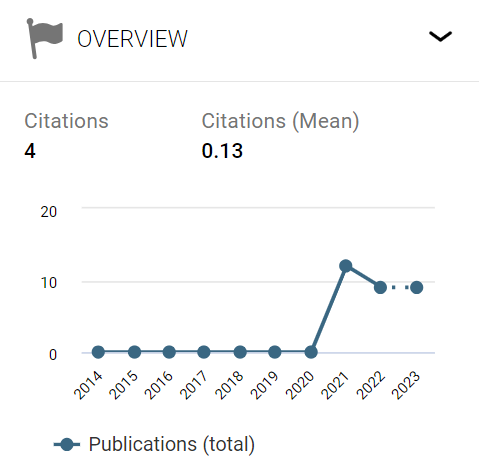Makna Dan Fungsi Label Kehormatan Israel Dalam Keluaran 19:6 Ditinjau Dari Teori Identitas Sosial
DOI:
https://doi.org/10.52849/apokalupsis.v12i2.28Keywords:
keluaran 19:6, kerajaan imam, bangsa yang kudus, teori identitas sosial (SIT)Abstract
The Israel's honorific label was given by the LORD God to the Israelites who had just come out of Egypt at Mount Sinai. Explaining the identity label, then understanding the Israel’s honor label certainly aims to form the social and spiritual identity of the Israelites. This article will discuss the meaning and function of honor labels through interdisciplinary studies between biblical studies using textual criticism and social psychology sciences, namely SIT. By using these two disciplines, the writer gets a fresher and brighter interpretation, especially regarding the meaning and function of Israel's honorific label in Exodus 19:6. From the research that has been done, the meaning of the honorific labels “מַמְלֶ֥כֶת כֹּהֲנִ֖ים” (mamlekhet kohanim) and “ג֣וֹי קָד֑וֹשׁ” (goy qadosh) is to express the identity of a nation of slaves who have been elevated to a kingdom of priests and a holy nation by GOD who has made a covenant with their forefather Abraham. Meanwhile, the function of giving the honorary label in Social Identity Theory/SIT's point of view is to raise the nation's self-esteem, express the appreciation contained in faith and encourage the nation to behave in accordance with their social and spiritual identity as the "Kingdom of Priests" and "Holy Nation"
References
Asali, B. (2021). Khotbah Eksposisi 1 Petrus 2:9-10. http://www.golgothaministry.org/1petrus/1petrus07.htm
Bergant, D. dan R. J. K. (2002). Tafsir Alkitab Perjanjian Baru. Kanisius.
Cairns, I. . (2011). Kitab Ulangan Pasal 1-11. BPK Gunung Mulia.
Douglas, J. . (1993). Esiklopedia Alkitab Masa Kini Jilid I. Yayasan Komunikasi Bina Kasih.
Ernawaty. (2016). Kesetiaan Allah terhadap janji ‘Seluruh Israel akan Diselamatkan’ dan Implikasinya bagi Orang Percaya: Studi Eksegesis menurut Roma 11:25-32. 1–64.
Fretheim, T. E. (1991). Exodus. John Knox.
Gottwald, N. K. (1985). The Hebrew Bible: Allah Socio-Literary Introduction. Fortress Press.
Hewitt, J. P. (1994). Self and Society: A Symbolic Interactionist Social Psychology. Allyn and Bacon.
Hill, A. E. dan J. H. W. (2008). Survei Perjanjian Lama. Gandum Mas.
Jenkins, R. (2014). Social Identity. Routledge.
Kartika, C. (2010). Relasi Perjanjian sebagai Dasar Pembentukan Kehidupan Spiritualitas Umat menurut Kitab Ulangan. Jurnal Amanat Agung, 6, 5–43.
Lim, K. Y. (2017). Metaphor and Social Identity Formation in Paul’s Letters to the Corinthians. Pickwick Publishing.
Ludji, B. (2009). Pemahaman Dasar Perjanjian Lama. Bina Media Informasi.
Morissan. (2010). Psikologi Komunikasi. Ghalia Indonesia.
Paterson, R. M. (2009). Kitab Keluaran. BPK Gunung Mulia.
Pfeiffer, C. F. dan E. F. H. (2011). The Wycliffe Bible Commentary. Gandum Mas.
Sin, S. K. (2003). Konsep Teologi tentang ibadah dalam Kitab Keluaran: Pembebasan-Perjanjian-Ibadah. Jurnal Teologi Alitheia, 5, 3–13.
Taylor, Shelley E., L. A. P. dan D. O. S. (2009). Psikologi Sosial. Kencana.
Trebilco, P. (2014). Self-designations and Group Identity in the New Testament. Cambridge University.
Tucker, J. B. (2010). You Belong to Christ: Paul and Formation of Social Identity in 1 Corinthians 1-4. Pickwick Publications.
Worchel, S. (1998). A Developmental View of the Search for Group Identity. In D. P. dan J.-C. D. Worchel, Stephen, J. Franscisco Morales (Ed.), Social Identity: International Perspectives. Sage Publications.
Downloads
Published
How to Cite
Issue
Section
License

This work is licensed under a Creative Commons Attribution-ShareAlike 4.0 International License.









